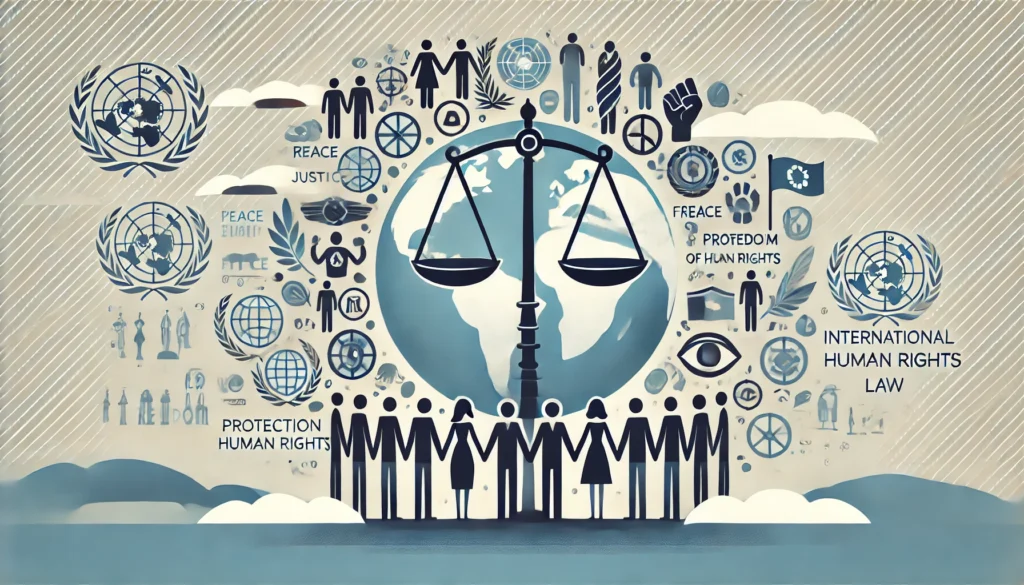Published On: 23rd June 2025
Authored By: Prithviraj Abrol
VIPS-TC
The principle of non-refoulement is a foundational element of international refugee law, prohibiting the return of individuals to a country where they face threats to life, freedom, or severe harm. Codified in Article 33 of the 1951 Refugee Convention, non-refoulement has evolved beyond treaty law into a norm of customary international law. Today, it is widely accepted as a jus cogens norm, implying that it binds all states, regardless of whether they are signatories to the Refugee Convention.
Although India is not a party to the 1951 Refugee Convention or its 1967 Protocol, it has traditionally extended refuge to displaced populations, including Tibetans, Sri Lankan Tamils, Afghans, and Rohingyas. However, India lacks a formal legislative framework for refugee protection and primarily relies on the Foreigners Act, 1946, which does not differentiate between refugees and other categories of migrants. This legal ambiguity has led to inconsistent judicial interpretations of non-refoulement.
This paper explores the manner in which Indian courts have interpreted the principle of non-refoulement, analyzing landmark cases such as NHRC v. Arunachal Pradesh (1996), Ktaer Abbas Habib Al Qutaifi v. Union of India (1999), Dongh Lian Kham v. Union of India (2016), and Mohammad Salimullah v. Union of India (2021). The study also assesses India’s international legal obligations under instruments such as the Universal Declaration of Human Rights (UDHR), the International Covenant on Civil and Political Rights (ICCPR), and the Convention Against Torture (CAT).
The findings reveal a recurring tension between judicial support for non-refoulement and executive actions driven by national security concerns. The paper argues for the enactment of a comprehensive refugee protection law in India to provide legal clarity, reinforce humanitarian commitments, and reconcile security concerns with international legal obligations.
Introduction
The principle of non-refoulement is a cornerstone of refugee and asylum law. It prohibits states from forcibly returning individuals to territories where they are likely to face persecution due to race, religion, nationality, political opinion, or membership in a particular social group. This protection is articulated in Article 33 of the 1951 Refugee Convention, which states:
“No Contracting State shall expel or return (‘refouler’) a refugee in any manner whatsoever to the frontiers of territories where his life or freedom would be threatened…”
Originally a treaty obligation, non-refoulement is now widely recognized as customary international law. It is binding even upon countries, such as India, that have not ratified the Refugee Convention.
India’s Unique Position on Refugee Protection
India has consistently offered refuge to displaced persons from various regions. Key instances include:
-
Tibetans (1959–present): Approximately 100,000 Tibetan refugees currently reside in India under a special policy framework.
-
Sri Lankan Tamils (1983–2009): Nearly 100,000 Tamils sought shelter during the Sri Lankan civil war.
-
Afghans (1980s–present): Fled political instability and violence in Afghanistan.
-
Rohingyas (2012–present): Fleeing persecution in Myanmar, several thousand have sought refuge in India. However, the government’s approach has been increasingly restrictive.
Despite this history, India lacks a formal refugee protection law. Instead, it relies on a patchwork of legal instruments:
-
The Foreigners Act, 1946: Makes no distinction between refugees and illegal immigrants.
-
The Passports Act, 1967: Subjects undocumented refugees to potential deportation.
-
Ad hoc Executive Policies: Provide discretionary asylum on a case-by-case basis.
Objectives of the Paper
This paper aims to:
-
Analyze judicial interpretations of non-refoulement in India.
-
Examine India’s international obligations related to refugee protection.
-
Propose legal reforms for a coherent asylum framework.
The paper ultimately emphasizes the conflict between constitutional protections, international obligations, and executive security concerns, arguing for the establishment of a formal refugee protection law.
Theoretical & Legal Framework
Definition and Scope of Non-Refoulement
Non-refoulement is a foundational principle of both refugee law and international human rights law. It ensures that no individual is returned to a country where they may suffer:
-
Persecution, as defined under the 1951 Refugee Convention.
-
Torture or cruel, inhuman, or degrading treatment, as prohibited by the Convention Against Torture (1984).
-
Serious threats to life or physical integrity due to conflict or instability.
Recognition in Customary International Law
Non-refoulement has achieved the status of a jus cogens norm—a peremptory norm of international law from which no derogation is permitted. As such, even non-signatory states like India are obligated to adhere to it.
India’s International Obligations
Although India has not acceded to the Refugee Convention, it is bound by other international instruments:
-
UDHR (1948): Affirms the right to seek asylum.
-
ICCPR (1966): Prohibits arbitrary deportation and ensures protection of life and liberty.
-
CAT (1984): Prohibits return of individuals to countries where they may face torture.
India’s Domestic Legal Position
Legal Framework
India’s refugee policy remains governed by outdated legislation:
-
Foreigners Act, 1946: Offers broad executive discretion and does not distinguish refugees from illegal immigrants.
Judicial Precedents
Indian courts have at times upheld the principle of non-refoulement:
-
NHRC v. Arunachal Pradesh (1996): Supreme Court blocked the eviction of Chakma refugees, citing Article 21.
-
Ktaer Abbas Habib Al Qutaifi v. Union of India (1999): Gujarat High Court held that non-refoulement is embedded in Article 21.
-
Dongh Lian Kham v. Union of India (2016): Delhi High Court emphasized adherence to international obligations.
-
Mohammad Salimullah v. Union of India (2021): Supreme Court allowed Rohingya deportation, contradicting prior rulings.
Conflicts Between National Security & Non-Refoulement
Although non-refoulement is fundamental in international law, national security concerns are frequently invoked to justify restrictive refugee policies. India, despite its humanitarian legacy, has not ratified the Refugee Convention, allowing the executive broad authority over asylum matters. The treatment of Rohingya refugees is emblematic of the tension between non-refoulement and security.
National Security Concerns
-
Illegal Immigration & Border Control
India’s 1,643 km porous border with Myanmar facilitates undocumented migration, especially in northeastern states like Assam, Manipur, Mizoram, and Arunachal Pradesh. The arrival of Rohingya refugees has intensified local grievances, particularly in Jammu & Kashmir. To control immigration, India has ramped up border fencing, surveillance, and enforcement under the Foreigners Act, though critics argue these actions undermine international standards.
-
Terrorism & Extremism Links
The government has cited intelligence reports linking some Rohingya refugees with extremist organizations, such as ARSA. The Ministry of Home Affairs (2018) labeled Rohingyas a “serious security threat,” citing risks such as arms trafficking and recruitment by Pakistan-based militants. Human rights groups caution against generalizing an entire community, as such narratives can fuel xenophobia.
-
Demographic Changes & Social Unrest
Government concerns include demographic imbalance and regional instability. In Assam, the NRC process aimed to detect illegal immigrants, disproportionately affecting marginalized groups. In Jammu, political factions have opposed Rohingya settlements. The government’s increased efforts to detain and deport these refugees further complicate the humanitarian response.
Contradictions Between Judicial Rulings and Executive Policies
While Indian courts have upheld non-refoulement, executive policies often prioritize national security.
-
Judicial Support for Non-Refoulement
-
NHRC v. Arunachal Pradesh (1996): Affirmed Chakma refugees’ rights under Article 21.
-
Ktaer Abbas Habib Al Qutaifi v. UOI (1999): Recognized non-refoulement as implicit in Article 21.
These rulings demonstrate judicial commitment to constitutional and international protections.
-
Government Actions Contradicting These Rulings
The government’s hardline policies culminated in Mohammad Salimullah v. UOI (2021), where the Supreme Court upheld Rohingya deportations. Authorities justify such actions by pointing out India’s non-signatory status. Additionally, detained refugees often endure poor conditions, raising human rights concerns.
This dichotomy underscores India’s fragmented refugee policy, which oscillates between legal protections and political expediency.
India must balance legitimate security concerns with its humanitarian obligations. Deporting refugees without due process risks violating international norms and India’s own constitutional principles. Establishing a formal refugee law could help harmonize these competing priorities.
Comparative Analysis
United States: Legal Framework for Non-Refoulement
-
Refugee Act of 1980: Integrates non-refoulement via Section 208 of the INA.
-
Individual Assessments: Required prior to deportation.
-
Judicial Oversight: Courts may block deportations violating international law.
Key Cases:
-
INS v. Cardoza-Fonseca (1987): Raised the standard for asylum, emphasizing “well-founded fear.”
-
Sale v. Haitian Centers Council (1993): Limited the extraterritorial scope of non-refoulement.
European Union: Stronger Refugee Protections
-
Common European Asylum System (CEAS): Ensures procedural fairness and prohibits deportation to unsafe countries.
Key Rulings:
-
Hirsi Jamaa v. Italy (2012): ECtHR held that forced returns to unsafe territories breach human rights obligations.
Bangladesh: A Case Similar to India
-
Despite no formal refugee law, Bangladesh has refrained from forcibly returning Rohingyas.
-
Collaborates with UNHCR to manage refugee camps.
This contrasts sharply with India’s efforts to deport Rohingyas, reflecting differing approaches despite similar legal contexts.
Need for Legal Reform in India
Arguments for a Comprehensive Refugee Law
-
Ensure Legal Certainty: Removes ambiguity and restricts arbitrary deportations.
-
Honor Humanitarian Traditions: Institutionalizes India’s history of providing refuge.
-
Boost International Standing: Aligns India with global standards and strengthens its diplomatic credibility.
Proposed Legal Reforms
-
Refugee Protection Act: Clearly define “refugee” and establish fair asylum procedures.
-
Amend Foreigners Act (1946): Integrate non-refoulement and limit executive discretion.
-
Create National Refugee Commission: An independent body to oversee refugee claims, minimizing political interference.
Conclusion & Recommendations
Summary of Findings
India’s lack of a dedicated refugee law leads to inconsistencies in policy and practice. While the judiciary often defends non-refoulement, executive actions prioritize national security.
Key points:
-
Judicial rulings endorse refugee protections under Article 21.
-
India is bound by international law to uphold non-refoulement, regardless of treaty status.
-
Comparative models highlight the feasibility of structured asylum systems.
Final Recommendations
-
Enact Comprehensive Refugee Law: Define legal status, outline asylum procedures, and embed protections.
-
Balance National Security and Human Rights: Vet claims appropriately while respecting refugee rights.
-
Engage Internationally: Collaborate with UNHCR and regional actors for coordinated refugee solutions.
A structured legal approach would reinforce India’s humanitarian image and ensure consistency in refugee governance, balancing both ethical obligations and sovereign interests.
References
-
Goodwin-Gill, G., The Refugee in International Law (Oxford University Press, 2001).
-
UNHCR, The Principle of Non-Refoulement under International Human Rights Law (2021), www.unhcr.org.
-
NHRC v. Arunachal Pradesh, (1996) 1 SCC 742 (SC).
-
Ktaer Abbas Habib Al Qutaifi v. UOI, (1999) 137 GLR 235 (Guj).
-
Dongh Lian Kham v. UOI, (2016) SCC OnLine Del 6125.
-
Mohammad Salimullah v. UOI, (2021) 7 SCC 785 (SC).
-
INS v. Cardoza-Fonseca, 480 US 421 (1987).
-
Hirsi Jamaa v. Italy, App No. 27765/09, ECtHR (2012).
-
Indian Ministry of Home Affairs, Rohingya Refugees and National Security Concerns (2018).




